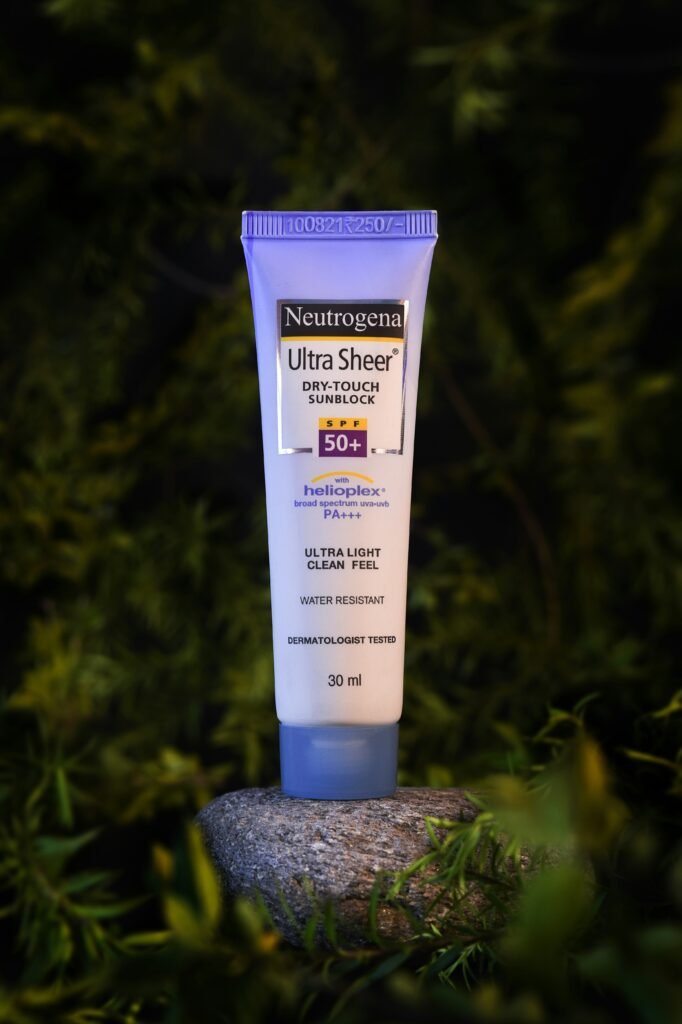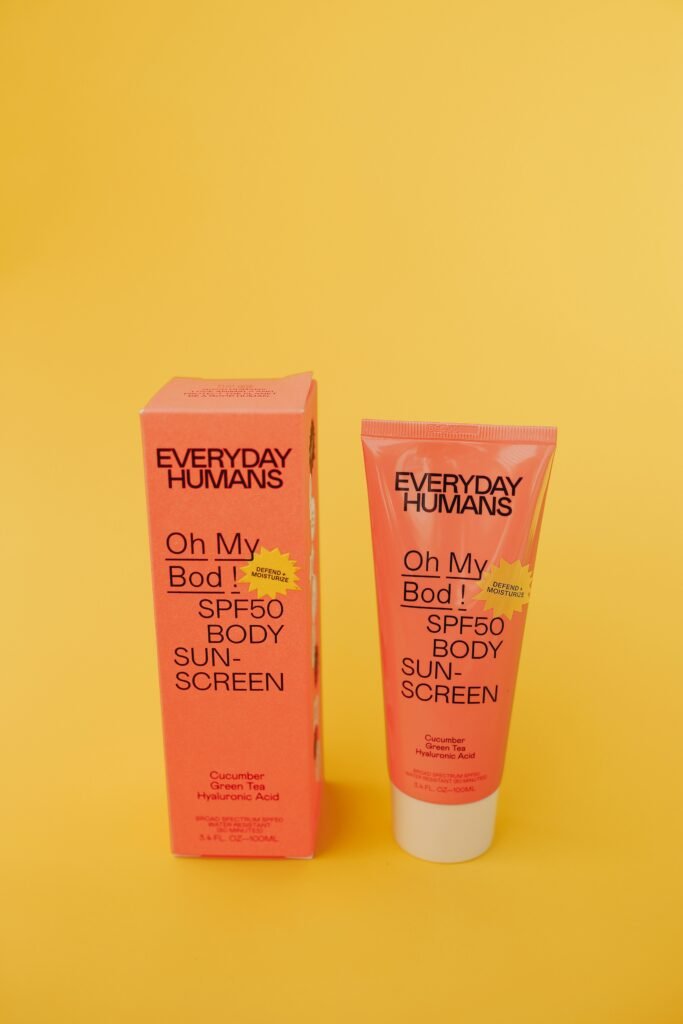Apply Sunscreen Every Day, Even On Cloudy Days. Sunscreen Is Essential For Protecting Your Skin From Harmful UV Rays, Which Can Cause Premature Aging And Skin Cancer.
Keeping your skin safe and healthy is of utmost importance, and one simple way to achieve that is by applying sunscreen every day. Rain or shine, cloudy or clear skies, sunscreen is an essential step in protecting your skin from the harmful effects of UV rays. These rays not only contribute to premature aging, but also increase the risk of skin cancer. So, whether you’re going for a stroll in the park or running errands, don’t forget to slather on some sunscreen and keep your skin well shielded from the sun’s damaging rays.

This image is property of images.unsplash.com.
Why sunscreen is important
Sunscreen is an essential part of your daily skincare routine, and for good reason. By applying sunscreen every day, you can effectively protect your skin from the harmful effects of UV rays. UV rays, also known as ultraviolet rays, are a form of electromagnetic radiation that comes from the sun. While exposure to UV rays is a natural part of being outside, prolonged or excessive exposure can have damaging effects on the skin.
Effects of UV rays on the skin
UV rays can cause a variety of negative effects on the skin, including premature aging and an increased risk of skin cancer. When we expose our skin to UV rays, it can lead to the breakdown of collagen and elastin, two essential proteins that keep our skin looking young and firm. This breakdown can result in the development of fine lines, wrinkles, and sagging skin, commonly known as premature aging.
Premature aging
Premature aging is a concern for many people, as it can make us look older than we actually are. The sun’s UV rays have a cumulative effect on our skin, meaning that the damage builds up over time. Even short periods of sun exposure can contribute to premature aging, so it’s essential to protect your skin every day, regardless of the weather or the season.
Skin cancer risks
Perhaps the most alarming effect of UV rays on the skin is the increased risk of skin cancer. According to the Skin Cancer Foundation, one in five Americans will develop skin cancer by the age of 70. Prolonged exposure to UV rays is the leading cause of skin cancer, so it’s crucial to take proactive measures to protect your skin. Applying sunscreen daily is one of the most effective ways to minimize your risk of developing skin cancer.
Benefits of wearing sunscreen
By incorporating sunscreen into your daily routine, you can enjoy a range of benefits that will help keep your skin healthy and youthful.
Protection from harmful UV rays
The primary benefit of wearing sunscreen is protection from the sun’s harmful UV rays. Sunscreen works by absorbing or reflecting the UV radiation, preventing it from penetrating the skin. Regular application of sunscreen can significantly reduce your risk of sunburns, premature aging, and skin cancer.
Prevention of sunburns
Sunburns are not only painful and uncomfortable, but they also indicate that your skin has been damaged by the sun’s UV rays. Sunburns occur when the amount of UV radiation exceeds the protection mechanisms of your skin. Wearing sunscreen with a high SPF (sun protection factor) can effectively prevent sunburns and reduce the damaging effects of UV radiation.
Minimizing the risk of skin cancer
As mentioned earlier, prolonged exposure to UV radiation is a significant risk factor for developing skin cancer. By wearing sunscreen with a broad-spectrum protection, you can significantly reduce your risk of developing this potentially life-threatening disease. It’s important to note that sunscreen should not be your only line of defense against skin cancer. Other protective measures such as seeking shade, wearing protective clothing, and avoiding peak sun hours should also be implemented.
Understanding UV rays
To understand the importance of wearing sunscreen, it’s helpful to have a basic understanding of how UV rays interact with our skin.
UVA vs UVB rays
UV rays are typically categorized into two types: UVA and UVB rays. UVA rays have a longer wavelength and can penetrate deep into the skin. These rays are responsible for causing premature aging, as they can reach the dermis, the middle layer of the skin. UVB rays, on the other hand, have a shorter wavelength and primarily affect the outer layer of the skin, known as the epidermis. These rays are the main cause of sunburns and are also linked to the development of skin cancer.
How UV rays penetrate the skin
UV rays are able to penetrate the skin by breaking down the DNA molecules within the skin cells. This can lead to mutations in the DNA, which can trigger the development of skin cancer over time. By wearing sunscreen, you can create a barrier between your skin and the UV rays, minimizing their ability to cause damage.
Different levels of UV radiation
The intensity of UV radiation can vary depending on factors such as the time of day, geographic location, and altitude. For example, UV radiation tends to be strongest between 10 am and 4 pm when the sun is at its highest point in the sky. Additionally, UV radiation also increases at higher altitudes and in areas closer to the equator. It’s important to be aware of these factors and take extra precautions, such as wearing a higher SPF sunscreen or seeking shade during peak sun hours.
Choosing the right sunscreen
Not all sunscreens are created equal, so it’s important to choose the right one for your skin and personal preferences.
SPF and broad-spectrum protection
When selecting a sunscreen, look for one with a high SPF. SPF measures the level of protection against UVB rays, which cause sunburns. The higher the SPF, the greater the protection. It’s recommended to use a sunscreen with an SPF of at least 30. Additionally, choose a sunscreen with broad-spectrum protection, which means it also provides protection against UVA rays. Look for sunscreens that are labeled as “broad-spectrum” to ensure you are getting comprehensive protection.
Water-resistant sunscreen
If you’ll be spending time in the water or participating in activities that make you sweat, it’s important to choose a water-resistant sunscreen. Water-resistant formulas are designed to stay effective for a certain amount of time while exposed to water. However, it’s important to reapply water-resistant sunscreen according to the label instructions, as it may wear off over time.
Physical vs chemical sunscreens
There are two main types of sunscreen: physical (mineral) and chemical sunscreens. Physical sunscreens contain mineral ingredients such as zinc oxide or titanium dioxide, which act as a barrier on the surface of the skin, reflecting and scattering UV rays. Chemical sunscreens, on the other hand, work by absorbing and neutralizing UV rays. Both types of sunscreens can be effective, so it’s a matter of personal preference. Keep in mind that physical sunscreens may leave a white cast on the skin initially, but newer formulations have reduced this effect.

This image is property of images.unsplash.com.
How to properly apply sunscreen
Applying sunscreen correctly is just as important as choosing the right sunscreen. Follow these guidelines for maximum effectiveness.
Applying sunscreen before sun exposure
To ensure adequate protection, it’s crucial to apply sunscreen before going outside, ideally about 15 to 30 minutes before sun exposure. This allows the sunscreen to fully absorb into the skin and create a protective barrier. Be sure to cover all exposed areas, including your face, neck, arms, and any other areas that will be directly exposed to the sun.
Coverage and reapplication
When applying sunscreen, make sure to cover all areas evenly and thoroughly. Pay attention to often overlooked areas such as the ears, back of the neck, and tops of the feet. Don’t forget to apply sunscreen to the lips as well, using a lip balm with SPF. To maintain adequate protection, it’s important to reapply sunscreen every two hours or more frequently if sweating or swimming.
Sunscreen for different skin types
Different skin types have different sunscreen needs. If you have oily or acne-prone skin, look for lightweight, oil-free, or non-comedogenic formulas that won’t clog your pores. Dry or sensitive skin may benefit from sunscreens that contain hydrating ingredients such as hyaluronic acid or ceramides. It’s also essential to choose a sunscreen that feels comfortable on your skin and works well with other skincare products you may be using.
Common misconceptions about sunscreen
There are several common myths and misconceptions surrounding sunscreen. Let’s address a few of them.
Sunscreen’s effectiveness on cloudy days
One common misconception is that sunscreen is not necessary on cloudy days. However, UV rays can penetrate clouds, and even on overcast days, a significant amount of UV radiation can reach your skin. It’s important to wear sunscreen regardless of the weather conditions to ensure proper protection.
Darker skin tones and sunscreen use
Another misconception is that people with darker skin tones do not need to wear sunscreen. While it’s true that darker skin tones have more built-in protection against the sun’s harmful rays due to the presence of more melanin, it does not make them immune to the damaging effects of UV radiation. Darker skin tones can still experience sunburns and are at risk of developing skin cancer, although the risk may be slightly lower compared to those with fair skin. Everyone, regardless of skin tone, should wear sunscreen daily.
Sunscreen and vitamin D production
Some people worry that wearing sunscreen may interfere with the body’s production of vitamin D, which is essential for bone health. While it’s true that sunscreen can reduce the skin’s ability to produce vitamin D, it’s important to remember that you can still get enough vitamin D through diet and supplements. The benefits of wearing sunscreen far outweigh the potential risks of inadequate vitamin D production.

This image is property of images.unsplash.com.
Sunscreen and daily skincare routine
Incorporating sunscreen into your daily skincare routine is essential for maintaining healthy and youthful-looking skin.
Incorporating sunscreen into your skincare routine
To make sunscreen application a habit, it’s best to incorporate it into your daily skincare routine. After cleansing and moisturizing your skin in the morning, apply sunscreen as the final step before makeup or going outside. By making it a regular part of your routine, you’ll ensure consistent protection against UV rays.
Using sunscreen along with other products
Sunscreen can be used in conjunction with other skincare products, such as serums, moisturizers, and makeup. Apply your skincare products first, allowing them to fully absorb into the skin, and then follow with the appropriate amount of sunscreen. If using makeup, opt for products that contain SPF or choose a sunscreen that can be worn under makeup for added protection.
Protecting your skin throughout the year
Sunscreen should be used year-round, regardless of the season. UV rays can still cause damage during cloudy or colder months. Make it a point to apply sunscreen every day, regardless of the weather conditions, to ensure that you are protecting your skin from the harmful effects of UV radiation.
Tips for sunscreen application
Here are some helpful tips to ensure you are applying sunscreen effectively.
Using enough sunscreen
To ensure proper protection, it’s important to use enough sunscreen. The general guideline is to use about one ounce (a shot glass full) of sunscreen for your entire body. For the face and neck, use about a nickel-sized amount. Applying too little sunscreen can result in inadequate protection, so don’t be afraid to be generous when applying.
Applying sunscreen to all exposed areas
When applying sunscreen, be sure to cover all exposed areas of your body, including often overlooked areas such as the back of your neck, hands, and tops of your feet. If you’re wearing a swimsuit or clothing with a low neckline, apply sunscreen to those areas as well, as they can still get sunburned.
Don’t forget the lips and ears
The lips and ears are commonly neglected when it comes to sun protection, but they are just as susceptible to sunburns and skin damage. Use a lip balm with SPF to protect your lips, and be sure to apply sunscreen on and around your ears to provide comprehensive coverage.

Sunscreen for different activities
Choosing the right sunscreen for different activities can enhance your protection and ensure a comfortable experience.
Sunscreen for outdoor sports and activities
If you’ll be involved in outdoor sports or activities where you’ll be sweating or constantly in motion, it’s important to choose a sunscreen that is specifically formulated for these purposes. Look for sweat-resistant or sports sunscreens that are designed to stay put even during physical activity. These sunscreens are often water-resistant as well, providing additional protection if you are participating in water sports.
Choosing the right sunscreen for swimming
When swimming, it’s crucial to choose a water-resistant sunscreen that can withstand exposure to water and still provide effective protection. Look for sunscreens labeled as “water-resistant” or “very water-resistant.” However, keep in mind that water-resistant sunscreens still need to be reapplied according to the instructions on the label, as they may wear off over time.
Sunscreen for daily outdoor activities
For everyday activities such as running errands or spending time in the park, a general sunscreen with broad-spectrum protection and a comfortable texture will suffice. Choose a sunscreen that feels lightweight and blends easily into the skin to ensure that you will be more likely to apply it consistently.
Conclusion
In conclusion, wearing sunscreen every day is crucial for protecting your skin from the harmful effects of UV rays. By incorporating sunscreen into your daily skincare routine, you can effectively minimize the risk of premature aging and skin cancer. Remember to choose a sunscreen with an appropriate SPF and broad-spectrum protection, and to apply it generously and regularly. By taking responsibility for your skin’s health and making sunscreen a daily habit, you can enjoy a healthier and more youthful complexion for years to come. So, grab your sunscreen and protect your skin for a brighter future!


